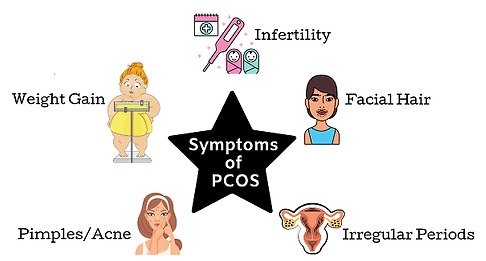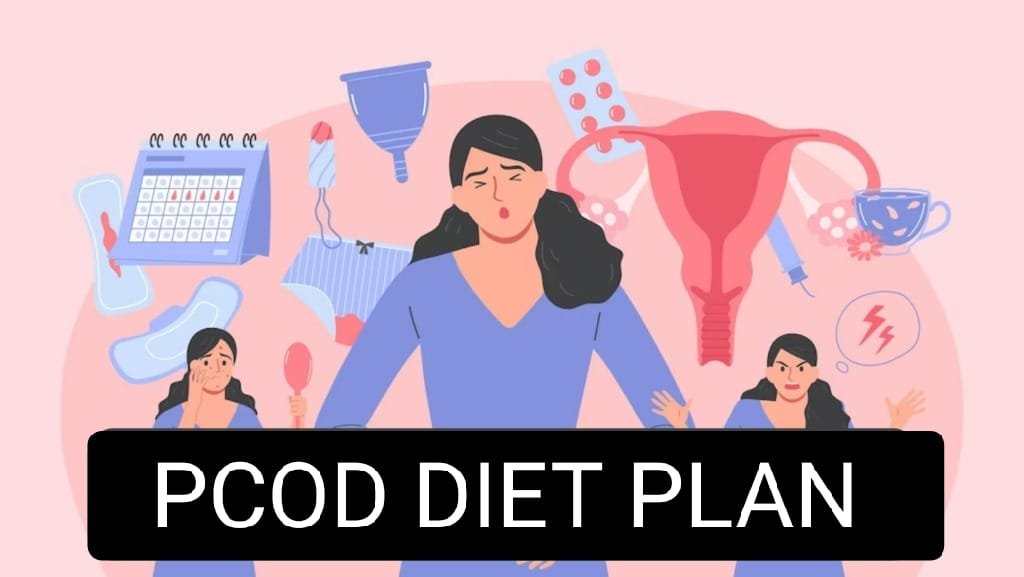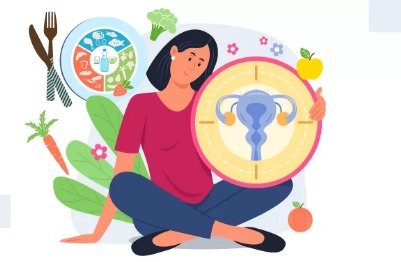Table of Contents
Navigating PCOD with Dietitian Monika: A Holistic Approach
Are you also in search of best PCOD dietitian in Delhi to manage and cure yourself from PCOD effectively? Look no further than Dr. Monika, best dietitian for PCOD in Delhi. With her expertise in PCOD nutrition and a holistic treatment approach, she can guide you towards improved health and well-being.

Understanding PCOD and Its Impact
What is PCOD?
PCOD, or Polycystic Ovary Disease is a complex condition characterized by hormonal imbalances, irregular menstrual cycles, and the presence of multiple small cysts on the ovaries. These cysts are follicles that have not developed properly and are unable to release eggs, leading to disruptions in the menstrual cycle and hormonal fluctuations.
Managing PCOD for Better Health
Polycystic ovary Disease (PCOD) affects millions of women worldwide, causing a range of symptoms that can impact both physical and emotional well-being. From irregular periods and hormonal imbalances to weight gain and fertility issues, PCOD can present significant challenges. However, with the right support and guidance from a knowledgeable PCOD dietitian, managing PCOD symptoms and improving overall health is possible. If you’re in Delhi, finding the best dietitian for PCOD can make all the difference.
In this blog, we’ll explore how PCOD Dietitian Monika’s holistic approach to PCOD treatment can make a difference in your journey towards better health and well-being.

Common Symptoms of PCOD
PCOD can manifest in a variety of symptoms, which may vary in severity from person to person. Some of the common symptoms include:
- Irregular menstrual cycles or absence of menstruation
- Excess androgen levels, leading to symptoms such as acne and excessive hair growth (hirsutism)
- Weight gain or difficulty losing weight
- Insulin resistance and increased risk of developing type 2 diabetes
- Fertility issues, including difficulty conceiving or infertility
If you’re experiencing symptoms like irregular periods, acne, excess hair growth, or difficulty losing weight, it’s essential to seek guidance from a registered PCOD dietitian or best PCOD diet counseling doctors.
Impact on Overall Health
Beyond its reproductive effects, PCOD can also impact overall health and increase the risk of developing other medical conditions. These may include:
- Metabolic abnormalities such as insulin resistance, which can lead to weight gain, high blood sugar levels, and an increased risk of type 2 diabetes
- Issues related to the heart, such as high blood pressure, raised cholesterol, and a higher chance of heart disease
- Psychological effects such as depression, anxiety, and poor self-esteem due to the impact of PCOD symptoms on daily life and emotional well-being
Diagnosis and Treatment
Diagnosing PCOD usually requires checking medical history, doing a physical exam, and running lab tests to measure hormone levels and rule out other causes of symptoms. Treating PCOD involves managing symptoms and addressing hormonal imbalances. This can involve lifestyle changes like diet and exercise, medications to regulate periods and manage symptoms, and fertility treatments for those trying to conceive.
If you’re looking for PCOD treatment without medication, Dr. Monika, best dietitian for PCOD in Delhi can provide personalized nutrition counseling to support your health goals.
The Role of Diet in Managing PCOD
Diet plays a crucial role in managing PCOD, offering an opportunity to alleviate symptoms, regulate hormones, and improve overall health. With the guidance of Best PCOD diet counseling doctors or best PCOD dietitian like Dr. Monika, you can make dietary changes that support hormone balance, regulate blood sugar levels, and improve sleep quality.

Balancing Blood Sugar Levels
One of the primary goals of a PCOD-friendly diet is to balance blood sugar levels and reduce insulin resistance. This can be achieved by focusing on:
- Complex Carbohydrates: Opt for whole grains such as brown rice, quinoa, oats, whole wheat bread, which are rich in fiber and digest slowly, helping to stabilize blood sugar levels.
- Lean Proteins: Incorporate lean sources of protein like poultry, fish, tofu and legumes into meals to promote satiety and prevent spikes in blood sugar.
- Healthy Fats: Include sources of healthy fats such as avocados, nuts, seeds and olive oil to help regulate blood sugar levels and support hormone production.
Choosing Low-Glycemic Foods
Foods with a low glycemic index (GI) are digested more slowly, resulting in gradual increases in blood sugar levels. Including low-GI foods in the diet can help prevent insulin spikes and promote better blood sugar control. Some examples of low-GI foods include:
- Non-starchy Veggies such as bell peppers, broccoli, cauliflower, and leafy greens
- Strawberries, blueberries, and raspberries are examples of berries.
- Legumes such as black beans, lentils, and chickpeas
- Dairy Goods like cottage cheese and Greek yogurt
Avoiding Sugary and Processed Foods
Highly processed foods and sugary treats can contribute to insulin resistance and exacerbate PCOD symptoms. It’s essential to limit or avoid:
- Sugary drinks like soda, fruit juice, and sweetened teas
- Processed snacks like chips, cookies, and pastries
- Foods high in refined carbohydrates and added sugars, such as white bread, pastries, and sugary cereals
Embracing Anti-Inflammatory Foods
Inflammation is believed to play a role in the development and progression of PCOD. Dietary anti-inflammatory foods can aid in symptom relief and inflammation reduction. Some anti-inflammatory foods to incorporate into meals include:
- Fatty fish that are high in omega-3 fatty acids, such as sardines, mackerel, and salmon
- Colorful fruits and vegetables such as berries, leafy greens, tomatoes, and bell peppers
- Nuts and seeds like walnuts, almonds, flaxseeds, and chia seeds
- Spices and herbs like turmeric, ginger, cinnamon, and garlic

Key Components of a PCOD-Friendly Diet
- Balanced Macronutrients: A balanced diet that includes a mix of carbohydrates, proteins, and healthy fats is essential for managing PCOD symptoms. By working with a PCOD dietitian like Monika, you can create a nutrition plan tailored to your individual needs and goals.
- Low-Glycemic Foods: Foods with a low glycemic index (GI) are digested and absorbed more slowly, helping to stabilize blood sugar levels and prevent insulin spikes. Incorporating low-glycemic foods such as whole grains, fruits, vegetables, and legumes can help manage PCOD symptoms and support weight loss.
- Anti-Inflammatory Foods: Women with PCOD often experience chronic inflammation, worsening insulin resistance and weight gain. Eating fatty fish, nuts, seeds, olive oil, and colorful fruits and veggies can lessen inflammation and boost health.
- Healthy Lifestyle Habits: In addition to dietary changes, adopting healthy lifestyle habits such as regular exercise, stress management, and adequate sleep can play a significant role in managing PCOD symptoms. PCOD Dietitian, Dr. Monika provides guidance on incorporating these habits into daily life to support overall well-being.
PCOD requires a comprehensive approach to management that addresses dietary and lifestyle factors. With the guidance of a best PCOD dietitian, Dr. Monika, you can take control of your symptoms and improve your overall health and well-being.
In this blog, we’ll delve into three critical topics related to PCOD and provide insights and strategies for managing them effectively.
PCOD and Sleep Disorders
Sleep disturbances are common among women with PCOD, often attributed to hormonal imbalances, insulin resistance, and other underlying factors. To improve sleep quality, consider implementing the following strategies:
Create a Regular Sleep Schedule: Maintain a regular sleep and wake-up schedule every day, including on the weekends, to help your body’s internal clock.
Create a Relaxing Bedtime Routine: Before going to bed, relax with soothing exercises like meditation, light stretching, or reading to let your body know it’s time to sleep.
Optimize Your Sleep Environment: Keep your bedroom calm, dark, and cold to create a sleeping environment. To encourage sound sleep, spend money on pillows and a good mattress.
Limit Screen Time Before Bed: Reduce exposure to screens (phones, computers, TVs) at least an hour before bedtime as the blue light emitted can disrupt sleep patterns.
Manage Stress: Practice stress-reducing techniques such as deep breathing, muscle relaxation or journaling to ease anxiety and promote relaxation before bedtime.
Limit Caffeine and Alcohol Intake: Avoid consuming caffeine and alcohol close to bedtime as they can interfere with sleep quality and disrupt your sleep cycle.
For personalized guidance on improving sleep quality and managing PCOD-related sleep issues, consider consulting with the best dietitian for PCOD in Delhi. With expert support and tailored advice, you can take proactive steps towards achieving better sleep and overall well-being.
PCOD and Hair Loss
Hair loss is common in PCOD. While its exact cause isn’t fully known, hormonal imbalances, insulin resistance, and inflammation likely contribute. Here are tips to manage PCOD-related hair loss:
Maintain a Healthy Diet: Eat a balanced diet rich in vitamins, minerals, and antioxidants to support hair health and growth. Focus on foods high in iron, zinc, biotin, and omega-3 fatty acids. If you’re struggling with hair loss due to PCOD, seeking guidance from a specialized PCOD dietitian can be beneficial.
Practice Gentle Hair Care: Avoid harsh styling techniques and products that can damage your hair. Use a wide-tooth comb, avoid tight hairstyles, and minimize heat styling to reduce hair breakage.
Consider Hair Supplements: Speak to your healthcare provider about supplement options that may help promote hair growth, such as biotin, collagen, or specific hair growth formulas.
Explore Topical Treatments: Look into topical treatments like minoxidil or hair growth serums that may help stimulate hair follicles and promote regrowth.
Address Underlying Health Conditions: Work with your healthcare provider to manage any underlying health conditions contributing to hair loss, such as hormonal imbalances or thyroid disorders.
PCOD and Hormonal Health
Hormonal imbalances are a hallmark feature of PCOD, leading to irregular periods, acne, weight gain, and other symptoms. Seeking guidance from a specialized PCOD dietitian can be beneficial in addressing hormonal imbalances through dietary and lifestyle changes. While medical interventions may be necessary in some cases, there are also natural strategies you can incorporate to support hormonal balance:
Eat a Balanced Diet: Focus on whole, nutrient-dense foods such as fruits, vegetables, lean proteins, and healthy fats. Avoid processed foods, sugars, and refined carbohydrates that can disrupt hormone levels.
Manage Stress: Chronic stress can disrupt hormone balance, so prioritize stress-reducing activities such as meditation, yoga, or spending time in nature.
Get Adequate Sleep: Aim for 7-9 hours of quality sleep per night to support hormone regulation and overall health.
Exercise Regularly: Engage in regular physical activity to help regulate hormone levels, improve insulin sensitivity, and support overall well-being.
Consider Herbal Remedies: Some herbs such as chasteberry, evening primrose oil, and saw palmetto may help support hormonal balance in women with PCOD.
By addressing sleep disturbances, hair loss, and hormonal imbalances through targeted strategies and lifestyle modifications, women with PCOD can improve their health and well-being by taking proactive steps. Remember to consult with a PCOD Dietitian for personalized advice and treatment options tailored to your individual needs.
PCOD and Weight Management
PCOD often goes hand in hand with weight management challenges, but with the right strategies, it’s possible to achieve success in managing both PCOD symptoms and weight. Here are some effective strategies for PCOD and weight management:
Understanding the Connection: Recognize the link between PCOD and weight gain. Hormonal imbalances associated with PCOD, such as insulin resistance, can make it harder to lose weight and maintain a healthy body weight.
Focus on Nutrition: Adopt a balanced and nutritious diet to support weight management and PCOD symptom relief. Choose whole, unprocessed foods such as fruits, vegetables, lean proteins, and healthy fats, and limit refined carbohydrates and sugary foods that can exacerbate insulin resistance.
Balanced Macronutrients: Aim for a balanced intake of carbohydrates, proteins, and fats to support energy levels, hormone regulation, and satiety. Incorporate complex carbohydrates, lean proteins, and healthy fats into your meals to promote stable blood sugar levels and reduce cravings.
Regular Exercise: Incorporate regular physical activity into your routine to support weight loss and improve overall health. Aim for a combination of cardiovascular exercise, strength training, and flexibility exercises to boost metabolism, build muscle mass, and enhance insulin sensitivity.
Set Realistic Goals: Set achievable and realistic weight loss goals to prevent frustration and disappointment. Focus on making gradual, sustainable changes to your diet and lifestyle rather than aiming for rapid weight loss, which can be difficult to maintain long-term.
Stay Consistent: Consistency is key to successful weight management. Maintain your fitness routine and good food plan in spite of obstacles or failures. Remember that progress takes time, and small, consistent changes can lead to significant results over time.
Finding PCOD Treatment Near You
If you’re struggling with PCOD symptoms and searching for best PCOD diet counseling doctors near you, Dietitian Monika offers personalized nutrition counseling and support to women with PCOD. As a registered dietitian with expertise in PCOD management, she can help you navigate your PCOD journey and empower you to make positive changes for better health.

Enroll Now in Our 45-Day PCOD Course By PCOD Dietitian, Dr. Monika.
Ready to take control of your PCOD symptoms and improve your quality of life? Enroll in our comprehensive 45-day PCOD course led by best dietitian for PCOD in Delhi, Monika. With expert guidance, individualized care, and proven strategies, you can unlock the wellness you deserve.
Here’s why you should enroll in our program today:
Expert Guidance: With years of experience, Best Dietitian for PCOD, Dr. Monika contributes a multitude of abilities and insights to the course. You can trust that you’re in capable hands as you embark on your journey to wellness.
Individualized Care: We understand that PCOD affects each person differently. That’s why our program is tailored to meet your unique needs and challenges. At every stage, you will receive individualized help and direction.
Comprehensive Approach: Our 45-day course takes a holistic approach to PCOD management. From understanding your condition to implementing dietary and lifestyle changes, we cover all aspects of PCOD care to ensure you experience lasting results.
Proven Strategies: You’ll learn practical tips and techniques that have been proven effective in supporting hormone balance, weight management, and overall wellness.
Supportive Community: Joining our program means joining a community of like-minded individuals who understand what you’re going through. You’ll have access to a supportive network of peers who will cheer you on and celebrate your successes.
Long-Term Benefits: Our goal isn’t just to provide temporary relief from PCOD symptoms. We’re committed to helping you achieve long-term success in managing your condition and improving your quality of life for years to come.
Don’t let PCOD hold you back any longer. Take the first step towards a healthier, happier you by enrolling in our 45-day PCOD course today. We can uncover the wellbeing you deserve together.
Conclusion
Managing PCOD requires a comprehensive approach that addresses both dietary and lifestyle factors. With the expertise and support of a qualified PCOD dietitian like Monika, you can take control of your PCOD symptoms, improve your overall health, and enhance your quality of life. If you’re ready to embark on your PCOD journey, contact best Dietitian for PCOD, Dr. Monika today to schedule a consultation and take the first step towards better health and well-being.

Frequently Asked Questions (FAQs)
Q1: What is PCOD, and how does it affect the body?
A1: PCOD stands for Polycystic Ovary Disease, a hormonal disorder affecting women of reproductive age. It can lead to irregular periods, ovarian cysts, and hormonal imbalances, impacting fertility and overall health.
Q2: What can I expect from PCOD Dietitian Monika’s 45-day PCOD diet plan?
A2: PCOD Dietitian Monika’s program offers a comprehensive approach to managing PCOD. You’ll receive personalized guidance, educational insights, and practical strategies to address PCOD symptoms, improve hormonal balance, and promote overall well-being.
Q3: How does mindful eating help manage PCOD symptoms?
A3: Mindful eating encourages awareness of hunger and fullness cues, promoting healthier food choices and preventing overeating. By listening to your body, you can better regulate blood sugar levels, support weight management, and alleviate PCOD symptoms.
Q4: Can physical activity really make a difference in managing PCOD?
A4: Yes, incorporating regular physical activity into your routine can improve insulin sensitivity, aid in weight loss, and reduce symptoms of PCOD. Dietitian Monika’s program includes personalized exercise recommendations to support your wellness journey.
Q5: How can I maintain my progress beyond the 45-day PCOD course?
A5: To sustain your health and vitality long-term, it’s essential to continue practicing the habits and strategies learned during the program. Work closely with PCOD Dietitian Monika to refine your approach, set achievable goals, and prioritize self-care for ongoing success.

Recent Comments